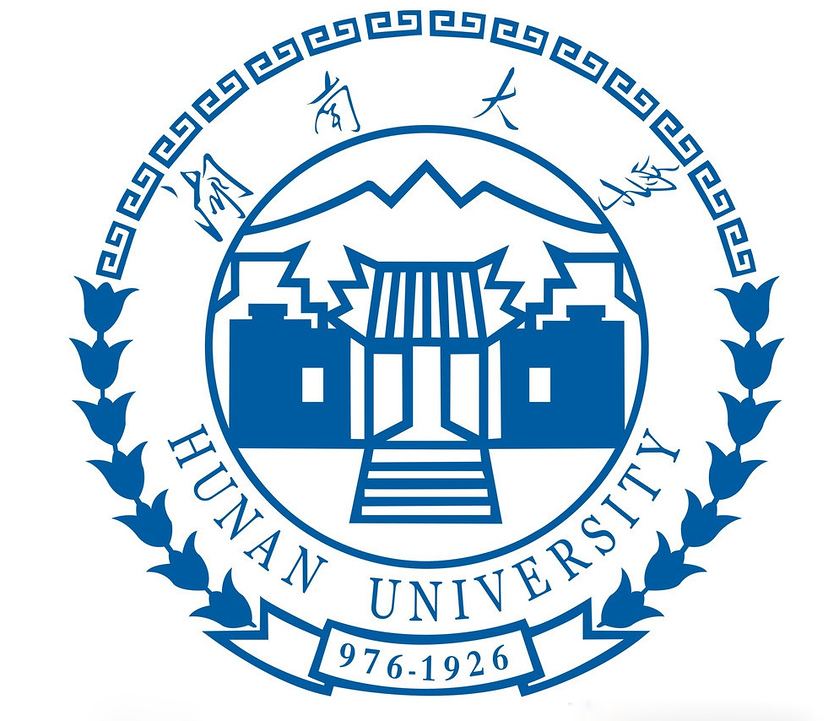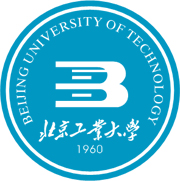Important Dates
Paper submission due:
Sep.30,2021
Notification of acceptance:
Oct.31,2021
Registration:
Nov.7,2021
Conference Date:
Oct. 21-23, 2022
Social Media
Workshop
+ 查看更多
Workshop 1
Title
:
Security and Energy Efficiency for the Internet of Things
Summary:
With the development of 5G wireless communication
technology, the Internet of Things (IoT) has been applied extensively,
such as smart city, intelligent transportation, driverless, smart
medical, wearable equipment and so on. IoT enables each device to
connect to the Internet, so that these devices can easily access the
network at any time. When billions of the devices are connected to the
Internet, a large amount of data will be generated. Due to the broadcast
nature of the wireless channel, when the transmitter transmits the
confidential signal to the legitimate receivers, there is a risk that
the information may be eavesdropped by eavesdroppers. The security has
aroused widespread concern. In addition, the transmission of large
amounts of data requires huge energy consumption, reducing energy
consumption and improving the energy efficiency of transmission system
have become the hot research directions.
We encourage prospective authors to submit related distinguished research papers, and any research papers related to these contents such as cache and energy harvesting are welcome.
We encourage prospective authors to submit related distinguished research papers, and any research papers related to these contents such as cache and energy harvesting are welcome.
Keywords:
IoT, Eavesdrop, Security, Energy Consumption, Energy Efficiency, Cache,
Energy Harvesting
Chair
:
Prof.
Chao Meng
Jinling Institute of Technology, China
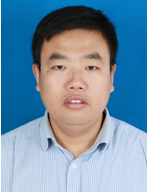
Chao Meng received a Ph. D. degree in Information and Communication
Engineering from the National Mobile Communications Research Laboratory
at Southeast University in 2015. He works as an associate professor at
Jinling Institute of Technology. His research interests include edge
computing, physical layer security, and energy harvesting.
He participated in the National Natural Science Foundation, the National Special Key Program, the National Basic Research Program, the National High Technology Research and Development Program, the Natural Science Foundation of the Higher Education Institutions of Jiangsu Province and the open research fund of National Mobile Communications Research Laboratory at Southeast University. Based on these projects, he published many academic papers. Besides, he serves as a reviewer of journals and international conferences such as Science China Information Sciences, Wireless Personal Communication, etc.
He participated in the National Natural Science Foundation, the National Special Key Program, the National Basic Research Program, the National High Technology Research and Development Program, the Natural Science Foundation of the Higher Education Institutions of Jiangsu Province and the open research fund of National Mobile Communications Research Laboratory at Southeast University. Based on these projects, he published many academic papers. Besides, he serves as a reviewer of journals and international conferences such as Science China Information Sciences, Wireless Personal Communication, etc.
Workshop 2
Title 1:
Intelligent Manufacturing and Application
Summary:
With the rapid development and wide application of new
generation information technology, the world focuses on intelligent
manufacturing once again. More and more countries propose different
strategic plans to support and develop intelligent manufacturing, such
as the the United States "re-industrialization" plan, the Japan "new
robot strategy" plan, the German "industry 4.0" plan and China made in
2025, etc. COVID-19's global spread had a severe impact on the
traditional manufacturing industry since the beginning of 2020, and
intelligent manufacturing showed a strong growth potential.
This workshop aims to bring together researchers from academia and the
industry. The other goal is to show the latest research results on
Intelligent manufacturing technology and application. We encourage
authors to submit related distinguished research papers on the subject
of theoretical approaches and practical case reviews such as
Intelligent factories, flexible production lines, large-scale
collaborative manufacturing, two-way collaboration of procurement and
circulation, support the construction of demonstration application
scenarios such as artificial intelligence, Internet of vehicles, big
data, blockchain, virtual reality / augmented reality (VR / AR).
Please name the title of the submission email with “paper
title_workshop title”.
Keywords:
Intelligent Manufacturing, Big Data, Cloud Computing, Block Chain,
Intelligent Factories, Flexible Production Lines, Large-Scale
Collaborative Manufacturing
Chair
:
Prof.
Ying Yang Guangxi University, China

she works as a professor at School of Computer, Electronics
and Information of Guangxi University. She received a Bachelor's
degree from Beihang University in 1991, a master's degree at Guangxi
University in 1996, a doctoral degree at Donghua University in
2006 and postdoctoral degree at Fudan University in
2013. Moreover, she went to Vermont University in the United States
from January to May 2010 as a visiting scholar.
Her research areas include big data, intelligent manufacturing,
distributed database and network technology. She participated in 16
projects such as supported by National Natural Science Foundation, key
special provincial and ministerial scientific research, and won
1 third prize for scientific and technological progress in
Guangxi Province, 1 first prize for Guangxi computer promotion and
application achievement. Besides, she owns 15 computer software
copyright registration certificates. She published more than 30 papers
on domestic and abroad journals, some papers indexed by SCI and Ei.
Workshop 3
Title 1:
Mobile Crowdsensing and Applications
Summary:
With the proliferation of mobile smart devices, Mobile
CrowdSensing (MCS) has attracted attention from the industry and
academia. MCS utilizes large amounts of participants to perform
various data collection tasks via their mobile devices. For MCS can
make full use of the mobile devices, participants, and networks to
achieve strong data collection ability, large coverage, low
deployment cost, and high scalability, many interesting and useful
MCS applications have already been presented and developed in real
life, such as air quality monitoring, target tracking, digital map
updating, and road condition detection.
Although many researchers have paid attention to MCS, MCS still
faces many challenges including the uncertainty of data collection,
and the missing, corrupted, and even abnormal data, etc. In
consideration of these points, this workshop aims to bring together
the research accomplishments provided by researchers from academia
and the industry. The other goal is to show the latest research
results in the MCS field. We encourage prospective authors to submit
related distinguished research papers on the subject of both:
theoretical approaches and practical application cases. Please name
the title of the submission email with “paper title_workshop title”.
Keywords:
Mobile Crowdsensing, Machine Learning, Incentive Mechanism, Security
and Trust, Privacy Preserving, Truth Discovery, Blockchain,
Federated Learning, Edge Computing, Data Trading
Chair
:
Prof.
Mingjun Xiao , University of Science and Technology of China

Prof. Mingjun Xiao received his doctorate in computer science and
technology at University of Science and Technology of China (USTC)
in 2004. He was a visiting scholar at Temple University in the USA
from 2011 to 2012. He works as a professor at the School of Computer
Science and Technology and School of Data Science of USTC.
He published more than 100 papers on international journals and
conferences including more than 20 CCF-A top journal or conference
papers. His papers were cited more than 1900 times by google
scholar. He served as the TPC, Track Chair or Workshop Co-Chair for
many top conferences, such as INFOCOM, ICDCS, IJCAI, DASFAA, ICCCN,
ICC, WISE, and is also on the reviewer board of top journals, such
as TC, TMC, TPDS, TON, TKDE, etc.
Prof.
Guoju Gao , Soochow University
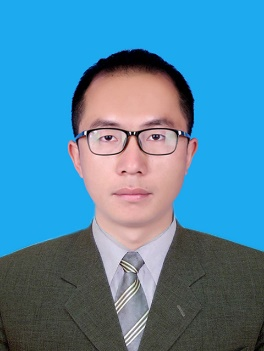
Prof. Guoju Gao received his Ph. D. degree in computer science and
technology at the School of Computer Science and Technology of
University of Science and Technology of China. He was a visiting
scholar at Temple University in the USA from Jan. 2019 to Jan. 2020.
He is an assistant professor at School of Computer Science and
Technology of Soochow University. His research interests include
incentive mechanisms, mobile crowdsensing, edge computing, traffic
measurement, and reinforcement learning.
He published more than 30 articles in referred high-level journals
and conferences including IEEE TMC, ToN, TPDS, TSC, IoT Journal,
INFOCOM, ICDCS, ICPP, etc. He serves as a reviewer of top journals,
such as IEEE TMC, TSC, etc.
Workshop 4
Title 1:
Big Data Open Platform
Summary:
In the era of big data, as a new public infrastructure, the
value of data has become increasingly prominent. In the process of
operation, the government and enterprises generate, collect and preserve
a large number of basic and key data, whose own value determines the
necessity of data opening. In addition to data, big data related
resources include data resources, computing resources, sample database,
algorithm library, analysis model set, application case library and
other types also need to be open and shared. Big data resource sharing
is the key to the use of big data and an important support to promote
the value-added services of information resources and the research of
data analysis technology. It needs the joint participation of academia,
government and industry in the research and construction of big data
platform. Big data resource sharing involves platform construction,
development mode, privacy policy, user experience, performance
evaluation, data standard and quality, resource ecology construction,
etc.
This workshop aims to bring together the research accomplishments provided by researchers from academia and the industry. We encourage prospective authors to submit related distinguished research papers on the subject of both: theoretical approaches and practical case reviews. Please name the title of the submission email with “paper title_workshop title”.
This workshop aims to bring together the research accomplishments provided by researchers from academia and the industry. We encourage prospective authors to submit related distinguished research papers on the subject of both: theoretical approaches and practical case reviews. Please name the title of the submission email with “paper title_workshop title”.
Keywords:
Big Data Platform, Big Data Sample Database, Algorithm Library, Data
Analysis Model Set, Data Standard and Quality, Big Data Resource Ecology
Chair
:
Prof.
Bilong Wen , Northeast Petroleum University, China.

He received a Ph. D. degree in computer software and theory at Beihang
University. He was a member of Petroleum Information and Computer
Professional Standardization Committee. He is head of data science and
big data technology major, head of software engineering major, dean of
big data research institute of Northeast Petroleum University. His
research areas include big data, software engineering. He presided over
a number of projects, include projects of National High Technology
Research and Development Program (863 Program of China), National Major
Project of Science & Technology of China, and participated in National
Natural Science Foundation of China and National Basic Research Program
of China(973). Based on these projects, he published many academic
papers and won a number of provincial and ministerial science and
technology progress awards.
Workshop 5
Title 1:
Experience Enhanced Intelligence to IoT
Summary:
The Internet of Things
(IoT) has gained
significant attention
from industry as well as
academia during the past
decade. The main reason
behind this interest is
the capabilities of the
IoT for seamlessly
integrating classical
networks and networked
objects, and hence
allows people to create
an intelligent
environment based on
this powerful
integration. However,
how to extract useful
information from data
past produced by IoT,
then transform such
information into
knowledge and facilitate
standard knowledge reuse
among different Things,
are still open issues to
be addressed.
The Experience Enhanced Intelligence to IoT workshop is devoted to the experience-based methods addressing knowledge acquisition, representation, inference, and reusing problems and their application to IoT. We want to offer an opportunity for researchers and practitioners to identify new promising research directions as well as to publish recent advances in this area. The scope of this workshop includes, but is not limited to the following topics:
• Theoretical framework for experience-based knowledge representation methods
• Experience-based knowledge extraction algorithms for IoT
• Dealing with Big Data and small data sets
• Subsampling and feature selection in multiple model machine learning
• Diversity, accuracy, interpretability, and stability issues
• IoT-oriented methods in prediction and classification
• Reusing, evolving, and online learning for IoT
• Inference and reasoning using experience-based methods
• Implementations of experience-based learning algorithms for IoT
• Applications of intelligent IoT methods in medicine, security, industry, engineering, etc.
Please name the titile of the submission email with:
“paper title_ Experience Enhanced Intelligence to IoT”
The Experience Enhanced Intelligence to IoT workshop is devoted to the experience-based methods addressing knowledge acquisition, representation, inference, and reusing problems and their application to IoT. We want to offer an opportunity for researchers and practitioners to identify new promising research directions as well as to publish recent advances in this area. The scope of this workshop includes, but is not limited to the following topics:
• Theoretical framework for experience-based knowledge representation methods
• Experience-based knowledge extraction algorithms for IoT
• Dealing with Big Data and small data sets
• Subsampling and feature selection in multiple model machine learning
• Diversity, accuracy, interpretability, and stability issues
• IoT-oriented methods in prediction and classification
• Reusing, evolving, and online learning for IoT
• Inference and reasoning using experience-based methods
• Implementations of experience-based learning algorithms for IoT
• Applications of intelligent IoT methods in medicine, security, industry, engineering, etc.
Please name the titile of the submission email with:
“paper title_ Experience Enhanced Intelligence to IoT”
Keywords:
Internet of Things;
machine learning;
experience-based
knowledge extraction;
signal processing;
Intelligent information
systems; data mining
Chair
:
Prof.
Haoxi
Zhang , Chengdu
University of
Information
Technology ,
China
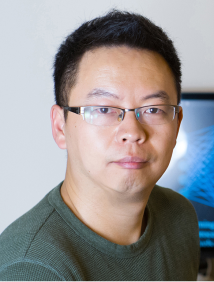
He is an Associate
Professor from the
Chengdu University of
Information Technology,
Chengdu, China. He
received his Ph.D.
degree in Knowledge
Engineering from the
University of Newcastle
in 2013, and the
master’s degree in
Software Engineering
from the University of
Electronic Science and
Technology of China. His
research interests focus
on experience-oriented
intelligent systems,
knowledge engineering,
Internet of Things, and
Deep Learning. He has
published more than 30
reputed journal and
conference papers.
Workshop 6
Title 1:
How to Embrace Big Data in Finance to Be Successful
Summary:
Big data in finance refers to the petabytes of structured and
unstructured data that can be used to anticipate customer behaviors
and create strategies for financial institutions. Many organizations
in finance have started on the path to take a data-centric approach
to manage their business. They believe that moving toward
data-driven optimization is a key to their success. Yet achieving
this goal has required the presence of a number of attributes. Key
factors for successfully exploiting the potential of Big Data will
be presented in my view:
• Getting support for Big Data analytics from top executives.
• Getting Big Data implementation “right”.
• Having a commitment to developing and using Big Data, from both internal and external sources, to support analytics efforts.
• Having strategies for the effective use of leading-edge analytic techniques and technologies.
• Taking advantage of opportunities to create value around Big Data.
• Ensuring alignment of Big Data analytics efforts throughout the organization.
• Getting support for Big Data analytics from top executives.
• Getting Big Data implementation “right”.
• Having a commitment to developing and using Big Data, from both internal and external sources, to support analytics efforts.
• Having strategies for the effective use of leading-edge analytic techniques and technologies.
• Taking advantage of opportunities to create value around Big Data.
• Ensuring alignment of Big Data analytics efforts throughout the organization.
Keywords:
Big Data, Finance
Chair
:
Prof.
Guang
Sun , Hunan
University
of Finance
and
Economics ,
China

Dr. Guang Sun works as a Full Professor at School of Information
Technology and Management of Hunan University of Finance and
Economics. His current research areas include Practical Big Data in
Finance, Deep Learning, Software Watermarking, Software Birthmarking
and Dependable Software. He published over 50 papers indexed by SCI
including over 5 ranked JCR-1 papers and 50 conference papers
related to these research areas indexed by Ei. He is an associate
dean of School of Information Technology and Management, dean of
Financial Big Data Research Institute. He currently serves as the
Director of National Information Technology Standardization
Technical Committee.
Workshop 7
Title 1:
Advanced Bioinformatics: Computational Methods for Knowledge
Discovery Based on Multi-Omics
Summary:
The development of high throughput omics technologies has enabled
accurate measurement of multiple modalities simultaneously in
individual studies or multi-omics integration from different
studies, and rapid data accumulation in multimodal omics including
genomics, transcriptomics, protteomics, metabolomics, phenomics,
radiomics and the cutting-edge 3D spatial omics, single-cell
omics, which provide an unparalleled opportunity for knowledge
discovery in intractable diseases such as discovery of biomarkers,
functional modules, causal pathways and regulatory networks, etc.,
which have great potential to bolster the therapeutic
pipelines.
Traditional statistical methods have been successfully applied to incorporate multi-omic datasets such as genome-wide association studies (GWAS), molecular quantitative trait loci (QTL) analysis and summarized Mendelian Randomization. However, limited pre-defined modalities have restricted the flexibility of available omics data, and the ability to incorporate different types of features of existing methods is still insufficient, which both decrease the power in knowledge discovery. Considering these aspects, advanced data mining, statistical and machine learning methods are urgently needed to perform cross-modal data integration and modeling. This workshop aims to show the advanced data mining and statistical approaches which are helpful to discover disease-related knowledge and illuminate molecular mechanisms of complex diseases. Topics of interest include but are not limited to:
• Statistical methods and applications for integrating multimodal omics data.
• Machine learning methods of feature representation for multimodal omics.
• Graph-based deep learning methods for disease-related node/linkage prediction.
• Identification of molecular biomarkers for complex diseases.
• Disease-related module identification and validation through integrating multimodal omics data.
• Database and web-tools for depositing and visualizing disease-related knowledge discovered based on multimodal omics.
Traditional statistical methods have been successfully applied to incorporate multi-omic datasets such as genome-wide association studies (GWAS), molecular quantitative trait loci (QTL) analysis and summarized Mendelian Randomization. However, limited pre-defined modalities have restricted the flexibility of available omics data, and the ability to incorporate different types of features of existing methods is still insufficient, which both decrease the power in knowledge discovery. Considering these aspects, advanced data mining, statistical and machine learning methods are urgently needed to perform cross-modal data integration and modeling. This workshop aims to show the advanced data mining and statistical approaches which are helpful to discover disease-related knowledge and illuminate molecular mechanisms of complex diseases. Topics of interest include but are not limited to:
• Statistical methods and applications for integrating multimodal omics data.
• Machine learning methods of feature representation for multimodal omics.
• Graph-based deep learning methods for disease-related node/linkage prediction.
• Identification of molecular biomarkers for complex diseases.
• Disease-related module identification and validation through integrating multimodal omics data.
• Database and web-tools for depositing and visualizing disease-related knowledge discovered based on multimodal omics.
Keywords:
Bioinformatics, Multi-Omics, Knowledge Discovery, Disease
Chair
:
Prof.
Tao
Wang ,
Northwestern
Polytechnical
University,
China

He received a Ph. D. degree in Computer Science and Technology at
Harbin Institute of Technology. He had a 3-years Ph. D. training
at Harvard Medical School. Now he is an associate professor at
School of Computer Science at Northwestern Polytechnical
University. His research interest includes bioinformatics,
artificial intelligence, computational biology. He is the guest
editor of Frontiers in Genetics, Frontiers in Psychiatry, and
Workshop co-chair of IEEE BIBM2021.
He participated in projects supported by National Natural Science
Foundation, National Key Projects and National Key Research and
Development Project. Based on these projects, he published many
academic papers.
Workshop 8
Title 1:
Research on the Application of Big Data and Artificial
Intelligence Technology in Intelligent Agriculture and Other
Fields
Summary:
With the rapid development of next-generation information
technologies such as the Internet of Things, artificial
intelligence and big data, agriculture has entered a new stage
of smart agriculture. Smart agriculture applies the Internet of
things, big data and cloud computing, artificial intelligence
and other modern information technology and intelligent
equipment, intelligent robot, etc. to agricultural production,
processing, management, transportation, management and services
such as the whole industrial chain link, precision planting,
Internet sales, intelligent decision-making and social services.
A modern agricultural development featuring digitalization,
automation, precision and intelligence has provided a basic
guarantee for a happy life for the people. The application
research of big data and artificial intelligence technology in
intelligent agriculture and other fields has practical
significance.
This workshop aims to bring together researchers from academia and industry, showcases the latest research results of big data and AI technologies in areas such as smart agriculture, and further explore how AI technologies can serve these industries better in the future. We encourage prospective authors to submit related distinguished research papers on the subject of both: theoretical approaches and practical case reviews. Please name the title of the submission email with “paper title_workshop title”.
This workshop aims to bring together researchers from academia and industry, showcases the latest research results of big data and AI technologies in areas such as smart agriculture, and further explore how AI technologies can serve these industries better in the future. We encourage prospective authors to submit related distinguished research papers on the subject of both: theoretical approaches and practical case reviews. Please name the title of the submission email with “paper title_workshop title”.
Keywords:
Smart Agriculture, Big Data, Artificial Intelligence, Research
on the Application
Chair
:
Prof.
Jiamin
Wang,
Shandong
Institute
of
Commerce
and
Technology,
China

He received a Ph. D. degree in Mechanical Engineering and
Automation at Shandong University in June 2016. He works as a
professor at Shandong Institute of Commerce and Technology. His
main research fields are artificial intelligence, intelligent
agriculture, cold chain logistics, etc.
He presided over 1 National 863 Program project, 1 provincial
major special project, and 1 provincial talent innovation
project. He participated in 2 provincial-level major projects, 1
provincial-level enterprise major innovation project and 5
provincial-level key livelihood projects as the technical
leader, 3 projects of national science and technology support
plan. Moreover, he published 17 papers including 1 paper indexed
by SCI, 5 papers indexed by Ei and 2 textbooks. He won two
second prizes of national teaching achievements and one second
prize and the third prize of Excellent scientific research
achievements of Shandong colleges and universities. He has 2
invention patents, 5 utility model patents and 5 cold chain
traceability software Copyrights in the field of cold chain
logistics.
Workshop 9
Title 1:
Few-Shot Learning Research and Application
Summary:
In the last decade, deep learning-based methods for visual
recognition tasks have reached or even surpassed human beings'
level in some scenarios. One crucial point for success is the
numerous labeled data. However, it may be a heavy burden of
data collection and maintenance under actual circumstances. In
contrast, Human has no problem forming the concept of
"giraffe" by only taking a glance from a picture in a book or
hearing its description as looking like a deer with a long
neck. To this end, researchers pay much more attention to
addressing the few-shot learning-based tasks in recent years.
Multiple kinds of strategies, including metric-learning,
meta-learning, semi-supervised learning, have been proposed.
Keywords:
Few-shot learning, Meta-learning, Metric-learning,
Semi-supervised learning
Chair
:
Prof.
Baodi
Liu,
China
University
Of
Petroleum,
China

Baodi Liu received a Ph.D. degree in Information and
Communication Engineering from Tsinghua University. He worked
as an associate professor at the college of control science
and engineering, China University of Petroleum (Huadong). He
participated in the National Natural Science Foundation,
Natural Science Foundation of Shandong Province. Based on
these projects, he published many academic papers.
Workshop 10
Title 1:
Special Issue on Natural Language Processing for
Low-Resource Languages
Summary:
Natural Language Processing (NLP) technologies made
significant impacts on human society, which were used in
many applications such as search engines, voice assistants,
language translation, document understanding and report
generation. However, most of the success of existing NLP
applications is applied to languages with high resources
such as English, French, German, and Chinese. NLP
technologies such as computational linguistics, information
extraction, and cross-lingual translation processing, have
failed to achieve reasonable performance when dealing with
languages with limited resources, such as those spoken in
some parts of Asia, Africa, South America, and other
developing countries. This is due to various limitations
such as the lack of tools and various learning techniques
for low resource languages. Developing novel approaches to
improve NLP technologies for languages with low resources
needs complex learning techniques. This could be achieved by
leveraging deep neural network methods. Deep low-resource
language learning with neural network-based architectures
enables the human natural language including words and
phrases as structures. Using deep learning-based neural
network models, there is a huge possibility of building a
low-resource language-based learning environment for human
languages with reduced perplexity and increased accuracy.
Furthermore, deep learning made great progress in solving
natural language processing problems like machine
translation, classification of text and caption generation,
etc. It also helped in learning the various layers embedded
in the process by feature mapping and max-pooling operation.
Similarly, other deep learning models can perform various
complex tasks in identifying the NLP in low-resource
languages swiftly and efficiently.
This workshop on Deep Learning for Natural Language
Processing applied to low resource languages provides an
excellent platform to exchange ideas related to machine
translation, speech recognition, cross-lingual translation
and information processing leveraging deep learning-based
neural approaches. The following topics are welcome but not
restricted to:
• Deep Learning-based Low-Resource Language processing for Wearable Devices
• Advantages and Challenges of Deep Low-Resource Language Learning
• Using Dynamic Neural Networks for Optimized Question-Answering Sequence Generation for Low-Resource Languages
• Analysis of Supervised and Unsupervised Learning of NLP
• Deep Learning Automated Dialogue Recognition Using Cross-Lingual Dictionaries
• Deep Learning for Language Identification and Multilingual Text in Low-Resource Languages
• Low-Resource Part-of-Speech Tagging Using Deep Learning Models
• Deep Learning for Word-Level Language Identification in NLP
• Deep Generative Methods for Voice and Speech Synthesis in Low-Resource Languages
• Convolutional Neural Network (CNN) based Sentiment Analysis for Low-Resource Languages
• Low-Resource Languages Based Building E-Dictionaries Using Deep Learning
• Linguistic Issues in Using Deep Learning for Low-Resource Speech Processing
• Deep Learning-based Low-Resource Language processing for Wearable Devices
• Advantages and Challenges of Deep Low-Resource Language Learning
• Using Dynamic Neural Networks for Optimized Question-Answering Sequence Generation for Low-Resource Languages
• Analysis of Supervised and Unsupervised Learning of NLP
• Deep Learning Automated Dialogue Recognition Using Cross-Lingual Dictionaries
• Deep Learning for Language Identification and Multilingual Text in Low-Resource Languages
• Low-Resource Part-of-Speech Tagging Using Deep Learning Models
• Deep Learning for Word-Level Language Identification in NLP
• Deep Generative Methods for Voice and Speech Synthesis in Low-Resource Languages
• Convolutional Neural Network (CNN) based Sentiment Analysis for Low-Resource Languages
• Low-Resource Languages Based Building E-Dictionaries Using Deep Learning
• Linguistic Issues in Using Deep Learning for Low-Resource Speech Processing
Keywords:
Natural Language Processing, Low-Resource Languages, Deep
learning, Artificial Intelligence
Chair
:
Prof.
Shaolin
Zhu,
Zhengzhou
University
of
Light
Industry,
China

He received a Ph. D. degree in computer science at Chinese
Academy of Sciences University in 2018. He works as an
associate professor at Zhengzhou University of Light
Industry. His research areas include Natural Language
Processing, Machine Translation and Cross-Lingual
Application. He participated in the National Natural Science
Foundation, National Key Projects, National Key Research and
Development Project, Tackling Key Scientific and
Technological Problems in Henan Province. Based on these
projects, He published more than 20 papers on international
journals and conferences including more than 10 CCF
high-quality journal or conference papers, such as TALLIP,
MT, NAACL, WISE, APWEB, KSEM, etc. Additionally, he is the
reviewer of top journals/conferences such as ACL, EMNLP,
NAACL, AAAI, ICANN, TALLIP, etc.
Prof.
Chenggang
Mi,
Northwestern
Polytechnical
University,
China
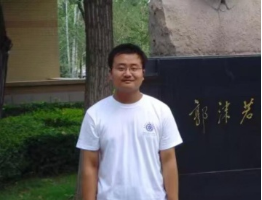
He received a Ph. D. degree in computer science at Chinese
Academy of Sciences University in 2015. He works as an
associate professor at Northwestern Polytechnical
University. His research interests include Natural Language
Processing, Machine Translation and Cross-lingual
Application. He participated in projects supported by
National Natural Science Foundation of China, National
Information Security Project, the Basic Research Project of
Military Commission of Science and Technology. He published
more than 30 papers on international journals and
conferences including more than 20 CCF high-quality journal
or conference papers such as TALLIP, NN, NAACL, COLING,
APWEB, KSEM, etc. Moreover, he is the reviewer of top
journals/conferences such as ACL, EMNLP, NAACL, AAAI,
ICOLING, TALLIP, etc.
Workshop 11
Title 1:
Computer Vision for Intelligent Scene Perception
Summary:
Visual understanding and multi-modality representation
fusion are essential to intelligent scene perception. With
the rapid progress in machine learning technologies, there
are tons of remarkable advances in intelligent scene
understanding, whose performance and application fields
are extended greatly. However, the complexity of scene
could be a challenge for efficient perception. For some
applications such as automatic drive, pedestrian
re-identification and robot tracking, the performance and
efficiency are typically affected by disturbances in the
natural scene. How to efficiently combine information from
visual and other modalities to enhance the robustness of
perception systems under accidental perturbation and
complexity issues is crucial and meaningful. This workshop
aims to bring together the research accomplishments
provided by researchers from academia and the industry.
The other goal is to show the latest research results in
the field of intelligent scene perception. We encourage
prospective authors to submit related distinguished
research papers on the subject of both: theoretical
approaches and practical case reviews.
Keywords:
Computer Vision, Multi-Modality Representation Learning,
Intelligent Scene Perception and Application, Person
Re-identification, Deep Learning
Chair
:
Prof.
Zhigang
Liu,
Northeast
Petroleum
University,
China

He received a Ph. D. degree in Computer Resources and
Information Engineering at Northeast Petroleum University
and was a visiting scholar at Department of Electrical and
Computer Engineering at National University of Singapore
from 2018 to 2019. As a member of IEEE and CCF, he is
currently the director of Department of Computer Science
and Engineering of Northeast Petroleum University. His
research interests include machine learning, computer
vision, especially, data/label- and computation-efficient
deep learning for visual recognition. He participated in
projects supported by National Natural Science Foundation,
Natural Science Foundation of Heilongjiang Province,
Scientific and Technological Projects of Petro-China, and
Youth Science Foundation of Northeast Petroleum
University. Based on these projects, he published many
academic papers.
Workshop 12
Title 1:
Computer Vision under Few Shot Learning
Summary:
Deep learning has achieved remarkable success in many
computer vision tasks and has outperformed humans in
some cases recently. However, current methods usually
rely on a very large amount of labeled training data and
sufficient sample coverage for each training category to
achieve high performance. And in some specific
application scenarios, such as medical, military and
financial fields, it is unlikely to obtain a large
amount of data due to privacy, security and other
factors. Even if there is a large amount of data, it is
impossible to obtain enough labeled training samples for
high cost. When the size of data sample is small, deep
learning is prone to overfitting. In contrast, human can
quickly learn new things with fewer data samples. That
is to say, the capability of learning and generalizing
from very few samples successfully is a noticeable
demarcation separating artificial intelligence and human
intelligence since humans can readily establish their
cognition to novelty from just a single or a handful of
examples whereas machine learning algorithms typically
entail hundreds or thousands of supervised samples to
guarantee generalization ability.
This workshop aims to bring together researchers from computer vision and machine learning to discuss emerging new technologies related to computer vision learning tasks with a small amount of labeled data. We encourage prospective authors to submit related distinguished research papers on the subjects: zero-shot and few-shot learning, active learning, unsupervised pre-training, semi-supervised learning, weakly-supervised learning, and others.
This workshop aims to bring together researchers from computer vision and machine learning to discuss emerging new technologies related to computer vision learning tasks with a small amount of labeled data. We encourage prospective authors to submit related distinguished research papers on the subjects: zero-shot and few-shot learning, active learning, unsupervised pre-training, semi-supervised learning, weakly-supervised learning, and others.
Keywords:
Artificial Intelligence, Zero-shot and Few-shot
Learning, Active Learning, Unsupervised Pre-training,
Semi-supervised Learning, Weakly-supervised Learning,
Meta Learning, Domain Adaptation
Chair
:
Prof.
Duanbing
Chen,
University
of
Electronic
Science
and
Technology
of
China,
China

Duanbing Chen received a Ph. D. degree in Computer
Software and Theory at Huazhong University of Science
and Technology. His research interests include big data,
artificial intelligence, computer vision, and complex
networks. He participated in projects supported by
National Natural Science Foundation of China, National
High Technology Research and Development Plan, and
Sichuan Science and Technology Support Program. Based on
these projects, he has published more than 80 academic
papers including 3 highly cited papers indexed by ESI.
Workshop 13
Title 1:
Recent Advances in Artificial Intelligence with
Applications
Summary:
Artificial intelligence has made rapid progress in
recent years. Especially, deep learning becomes one of
the mainstream techniques. It makes contributions to
the development of computer vision, natural language
processing and many others. Nowadays non-structural
data is ubiquitous. How to devise effective methods is
desired and worthy of discussion such as finding some
effective graph neural networks for graph-structural
data from both theoretical and practical point views.
Of course, applications in chip design, virtual
reality and traffic systems also deserve some
concerns.
This workshop aims to bring together the research accomplishments provided by researchers from academia. The main goal is to show the latest research results in the field of artificial intelligence and understand how governance strategy can influence it. We encourage prospective authors to submit related distinguished research papers on the subject of both: theoretical approaches and practical case reviews. Please name the title of the submission email with “paper title_workshop title”.
This workshop aims to bring together the research accomplishments provided by researchers from academia. The main goal is to show the latest research results in the field of artificial intelligence and understand how governance strategy can influence it. We encourage prospective authors to submit related distinguished research papers on the subject of both: theoretical approaches and practical case reviews. Please name the title of the submission email with “paper title_workshop title”.
Keywords:
Artificial Intelligence, Graph Neural Networks, Chip
Design, Virtual Reality, Subspace Clustering
Chair
:
Prof.
Youfa
Liu,
Huazhong
agricultural
university,
China

Youfa Liu received a Ph. D. degree in Computer Science
at Wuhan University. He works as a member at the
Huazhong Agricultural University. His research
interests include artificial intelligence, machine
learning and computer vision. He participated in
projects supported by National Natural Science
Foundation, National Key Projects, National Key
Research and Development Project. Based on these
projects, he published many academic papers on top
journals, such as TIP, TNNLS, and INS.
Workshop 14
Title 1:
Intelligent Image Processing and Recognition
Summary:
With the rapid development of artificial
intelligence technology, the field of image
processing and recognition has become a hot topic.
Images play the most important role in human visual
perception. Image processing is an important step
for people to understand the world by pictures and
videos through a series of computer-based methods
and techniques for removing noise, enhancing,
restoring, dividing, extracting features, and target
recognition.
This workshop aims to bring together the image
processing and image recognition research
accomplishments provided by researchers from
academia and the industry. The other goal is to show
the latest research results in the field of image
processing and recognition. We encourage prospective
authors to submit related distinguished research
papers on the subject of both: theoretical
approaches, algorithms and practical case reviews.
Please name the title of the submission email with
“paper title_workshop number”.
Keywords:
image processing, image recognition, pattern
recognition, computer vision, deep learning
Chair
:
Prof.
Huimin
Lu,
Changchun
University
of
Technology,
China

She graduated from Xi’an Jiaotong University and
obtained a master’s degree and a doctor’s degree in
computer science and technology. She was a
postdoctoral fellow at Jilin University and a
visiting scholar at the University of
Missouri-Columbia in USA. She works as a professor
at the School of Computer Science and Engineering of
Changchun University of Technology, a tutor for
doctoral students majoring in statistics, and a
tutor for graduate students majoring in computer
science. Her research interests include data
analysis and mining, artificial intelligence, and
biometric recognition. She participated in projects
supported by National Natural Science Foundation,
and National 863 Program projects, and she also
presided over projects supported by National Natural
Science Foundation, and Jilin Province Key Major R&D
projects, industrial technology R&D projects,
Natural Science Foundation, etc. Based on these
projects, she published more than 40 academic papers
indexed by SCIE and Ei and obtained more than 10
patents. She also got the Jilin Province Science and
Technology Progress Award.
Workshop 15
Title 1:
Challenges and Opportunities in Cloud Computing
and Edge Computing
Summary:
The growth of Internet services has promoted the
popularity of many large-scale data-intensive
applications (e.g. video conferences, cloud
services, and financial data analysis) recently.
As a result, large-scale networks are increasingly
experiencing burst flows and the traditional
network architecture exposes three major flaws:
complex architecture, high resource redundancy,
and limited network management. Though the
resource utilization can be improved by leveraging
some state-of-the-art technologies, such as
software-defined networking and edge computing,
current resource management strategies cannot
perfectly deal with the unpredictable traffic
demand and ensure the Quality of Services (QoS)
provided to tenants, which hurts the system
scalability and robustness.
This workshop aims to bring together researchers from academia and industry, presents the latest research results in areas such as cloud computing, edge computing, cloud-edge synergy, 5G, data center networks, and software-defined networks. We encourage prospective authors to submit related distinguished research papers on the subject of both: theoretical approaches and practical case reviews. Please name the title of the submission email with ‘paper title_workshop title’.
This workshop aims to bring together researchers from academia and industry, presents the latest research results in areas such as cloud computing, edge computing, cloud-edge synergy, 5G, data center networks, and software-defined networks. We encourage prospective authors to submit related distinguished research papers on the subject of both: theoretical approaches and practical case reviews. Please name the title of the submission email with ‘paper title_workshop title’.
Keywords:
Cloud Computing, Edge Computing, Cloud-Edge
Synergy, 5G, Data Center Networks,
Software-Defined Networks, NFV-enabled Networks
Chair
:
Prof.
Gongming
Zhao,
University
of
Science
and
Technology
of
China,
China

Gongming Zhao received a Ph. D. degree in computer
software and theory at the University of Science
and Technology of China (USTC) in 2020. He was a
visiting scholar with the State University of New
York at Buffalo (UB). He works as a research
associate professor at the University of Science
and Technology of China (USTC). His research
interests include cloud computing, edge computing,
and software-defined networks. He authored or
coauthored more than 20 papers in famous journals
and conferences, including the IEEE/ACM
Transactions on Networking (ToN), IEEE Journal on
Selected Areas in Communications (JSAC), IEEE
Transactions on Parallel and Distributed Systems
(TPDS), IEEE Transactions on Communications
(TCOM), IEEE Conference on Computer Communications
(INFOCOM), IEEE International Conference on
Network Protocols (ICNP), IEEE/ACM International
Symposium on Quality of Service (IWQoS), etc.
Workshop 16
Title 1:
Big Data Analytics for Intelligent
Transportation and Business Intelligence
Summary:
Recent advances in information and communication
technologies are facilitating substantial
improvements in many aspects of nowadays
society. Novel technologies, such as the
Internet of Things, artificial intelligence,
advance automation, mobile technologies, enable
a huge volume of data in different formats
generated by organizations, communities,
individuals, and even the vehicles to be
recorded and analyzed effectively. Such a big
data increasingly drives decision making and is
changing the landscapes of two important fields
-- intelligent transportation and business
intelligence. Big data analytics that discovers
insights from evidences has a high demand for
interpretable data mining, knowledge discovery,
problem solving, and event
prediction/prescription.
This workshop offers a platform for the state-of-the-art research on the latest development and challenges in the fields of big data analytics for intelligent transportation as well as business intelligence, providing insight into the theories and technologies that are transforming our lives. Proposed submissions should be original and unpublished. Potential topics include, but are not limited to:
• Explainable/interpretable AI in transportation or business analytics
• Innovative methods for big data analytics
• Techniques for mining unstructured data (e.g., human voice, user generated contents, vehicle/human trajectories, etc.)
• Autonomous vehicles
• Intelligent planning, scheduling, decision, and smart dispatching
• Human factors in an era of connected and automated transportation
• Real-world applications of big data analytics, such as anomaly/default detection, intelligent planning, scheduling, intent recognition, etc.
• Data driven causal inference/discovery in business intelligence
This workshop offers a platform for the state-of-the-art research on the latest development and challenges in the fields of big data analytics for intelligent transportation as well as business intelligence, providing insight into the theories and technologies that are transforming our lives. Proposed submissions should be original and unpublished. Potential topics include, but are not limited to:
• Explainable/interpretable AI in transportation or business analytics
• Innovative methods for big data analytics
• Techniques for mining unstructured data (e.g., human voice, user generated contents, vehicle/human trajectories, etc.)
• Autonomous vehicles
• Intelligent planning, scheduling, decision, and smart dispatching
• Human factors in an era of connected and automated transportation
• Real-world applications of big data analytics, such as anomaly/default detection, intelligent planning, scheduling, intent recognition, etc.
• Data driven causal inference/discovery in business intelligence
Keywords:
Big Data Analytics, Artificial Intelligence,
Intelligent Transportation, Business
Intelligence, Data Driven Causal Inference,
Explainable AI
Chair
:
Prof.
Zhijun Chen,
Intelligent Transportation Systems Research
Center, Wuhan University of Technology,
China

Zhijun Chen received a Ph. D. degree in
Automotive Engineering at Wuhan University of
Technology, joint training of doctoral students
of University of Wisconsin-Madison. He works at
the Intelligent Transportation Systems Research
Center of Wuhan University of Technology. His
research interests involve traffic safety,
vehicle behavior recognition, machine learning,
and big data applications in intelligent
transportation systems.
He participated in projects supported by National Natural Science Foundation, National Key Projects, National Key Research and Development Project. Based on these projects, he published many academic papers cited hundreds of times in highly qualified journals including Knowledge-based Systems, European Journal of Operational Research, Safety Science, IEEE Transactions on Intelligent Transportation Systems, Computer Communications, etc.
He participated in projects supported by National Natural Science Foundation, National Key Projects, National Key Research and Development Project. Based on these projects, he published many academic papers cited hundreds of times in highly qualified journals including Knowledge-based Systems, European Journal of Operational Research, Safety Science, IEEE Transactions on Intelligent Transportation Systems, Computer Communications, etc.
Prof.
Yishi Zhang,
School of Management, Wuhan University of
Technology,
China

Yishi Zhang received his Ph. D. degree in
management science and engineering at Huazhong
University of Science and Technology. He was a
post-doc at University of Pittsburgh from 2016
to 2019. He works as a professor at School of
Management of Wuhan University of Technology.
His research interests involve big data
analytics, information systems, business
intelligence and its interpretability.
He was honored with the Chutian Scholar Award of Hubei province. He published many academic papers in highly qualified journals including Decision Support Systems, European Journal of Operational Research, Safety Science, IEEE Transactions on Intelligent Transportation Systems, Knowledge-based Systems, Acta Psychologica Sinica, etc. He also serves as the referee or the member of the review team of the above journals.
He was honored with the Chutian Scholar Award of Hubei province. He published many academic papers in highly qualified journals including Decision Support Systems, European Journal of Operational Research, Safety Science, IEEE Transactions on Intelligent Transportation Systems, Knowledge-based Systems, Acta Psychologica Sinica, etc. He also serves as the referee or the member of the review team of the above journals.
Workshop 17
Title 1:
Artificial Intelligence for Medical Image
Computing and Digital Medicine
Summary:
One of the most promising areas of health
innovation is the application of artificial
intelligence (AI), primarily in medical
imaging and digital medicine. Indeed, AI may
find multiple applications, from image
acquisition and processing to data
visualization, data storage, data mining,
computer aided diagnosis, big data analysis in
medicine and many others. Due to this wide
range of applications, AI is expected to
massively impact radiologist’s and clinician’s
daily life. However, it is also clear that the
pace of adopting AI into clinical radiology
practice is not as fast as expected, thus
awaiting more advanced machine learning and
deep learning methods for practical clinical
applications.
This workshop aims to develop advanced artificial intelligence, machine learning or deep learning techniques for medical imaging computing and digital medicine areas. We encourage prospective authors to submit related distinguished research papers on the subject of both: theoretical approaches and practical applications. Please name the title of the submission email with ‘paper title_workshp title’.
Topics of interests include, but are not limited to:
Medical image segmentation, registration and fusion; medical image reconstruction and image quality; medical image analysis; computational anatomy and physiology; microscopy and histology image analysis; computer aided diagnosis; population imaging and imaging genetics; visualization in biomedical imaging; optical and photo-acoustic imaging; radiomics; molecular imaging; big-data analysis in medicine; digital pathology; bioinformatics.
This workshop aims to develop advanced artificial intelligence, machine learning or deep learning techniques for medical imaging computing and digital medicine areas. We encourage prospective authors to submit related distinguished research papers on the subject of both: theoretical approaches and practical applications. Please name the title of the submission email with ‘paper title_workshp title’.
Topics of interests include, but are not limited to:
Medical image segmentation, registration and fusion; medical image reconstruction and image quality; medical image analysis; computational anatomy and physiology; microscopy and histology image analysis; computer aided diagnosis; population imaging and imaging genetics; visualization in biomedical imaging; optical and photo-acoustic imaging; radiomics; molecular imaging; big-data analysis in medicine; digital pathology; bioinformatics.
Keywords:
Medical Imaging Computing, Digital medicine,
Artificial intelligence, Machine Learning,
Deep Learning
Chair
:
Prof.
Yudan Ren,
Northwest University, China

Yudan Ren received a Ph.D. degree in Control
Theory and Control Engineering at Northwestern
Polytechnical University and had a 3-year Ph.
D. training at QIMR Berghofer Medical Research
Institute (Australia). Now she worked as an
associate professor at Northwest University.
Her research interests include medical image
analysis, computational neuroscience, and
artificial intelligence inspired by cognitive
and neuroscience. She leads and participates
in projects supported by the National Natural
Science Foundation, the Natural Science
Foundation of Shaanxi Province, the Youth
Innovation Team Foundation of Education
Department of Shaanxi and the National Key R&D
Program of China, etc. She published academic
papers in Nature Communications, Human Brain
Mapping, Cortex, MICCAI, etc, and gave oral
presentations in ISBI, ISICDM, etc. She is
guest associate editor and review editor of
Frontiers in Neuroscience and Frontiers in
Computational Neuroscience, and also serves as
the reviewer for NeuroImage, Frontiers in
Neurology, MICCAI, and ISBI, etc.
Workshop 18
Title 1:
Applications of knowledge representation
and deep learning
Summary:
With the development of network technology,
human-computer interaction has become
increasingly close. Specifically, images,
videos and texts are important carriers of
the human-computer interaction. For
instance, face recognition can help people
determine personal identity, which can
improve their work efficiency. Medical image
detections are convenient for doctors to
diagnose diseases for patients. Also, video
detection is beneficial to reconnoiter the
suspects for polices. Besides, big data
retrieval based texts can assist people to
quickly learn knowledge for addressing their
problems. Although images, videos and texts
have been widely applied in many fields in
the real world, understanding their contents
is very difficult. For instance, digital
devices will suffer some challenges of
device jitter, illumination and moving
objects, which will result in obtained
low-quality images and videos. That will
seriously affect the high-level visual
tasks. Additionally, most of existing
methods rely on large-scale training data,
which can cause big computational costs.
Inspired by that, we plan to hold a workshop
of applications of knowledge representation
and deep learning on the International
Conference on Computer, Big Data and
Artificial Intelligence 2021 for discussing
and solving these issues.
This workshop aims to bring together the research accomplishments provided by researchers from academia and the industry. The other goal is to show the latest research results in the fields of deep learning and knowledge representation for images, videos, etc. We encourage prospective authors to submit related distinguished research papers on the subject of both: theoretical approaches and practical case reviews. And all the workshop papers will be indexed by the EI library. Specifically, excellent papers will be published in the journals of indexed by SCI.
Please name the title of the submission email with “paper title_ICCBDAI_workshop”.
This workshop aims to bring together the research accomplishments provided by researchers from academia and the industry. The other goal is to show the latest research results in the fields of deep learning and knowledge representation for images, videos, etc. We encourage prospective authors to submit related distinguished research papers on the subject of both: theoretical approaches and practical case reviews. And all the workshop papers will be indexed by the EI library. Specifically, excellent papers will be published in the journals of indexed by SCI.
Please name the title of the submission email with “paper title_ICCBDAI_workshop”.
Keywords:
Deep Learning, Image Processing, Video
Processing, NLP, and Machine Learning
Chair:
Prof.
Chunwei Tian,
Northwestern Polytechnical University,
China

Chunwei Tian received a Ph.D. degree in
Computer Application Technology from Harbin
Institute of Technology. He is an associate
professor at School of Software of
Northwestern Polytechnical University and a
member of the National Engineering
Laboratory for Integrated Aerospace
Ground-Ocean Big Data Application
Technology. Besides, he was a member of
Shenzhen Key Laboratory of Visual Object
Detection and Recognition. His research
interests include image restoration, image
recognition and deep learning. He published
over 30 papers in academic journals and
conferences including IEEE T-NNLS, IEEE
T-MM, IEEE T-SMC, Neural Networks,
Information Sciences, KBS, PRL, ICASSP,
ICPR, ACPR and IJCB. He has two ESI
highly-cited papers, three homepage papers
of the Neural Networks, one excellent paper
in 2018 and 2019 for the CAAI Transactions
on Intelligence Technology. Also, his three
codes are rated as the contribution codes of
GitHub 2020. His two paper techniques are
integrated on the iHub and Profillic.
Besides, he is a technology expert of
Shanghai. He is an associate editor of the
Journal of Electrical and Electronic
Engineering and International Journal of
Image and Graphics, a guest editor of
Mathematics, a PC of the IEEE DASC 2021,
ACAIT 2021, IEEE DASC 2020, a PC Assistant
of IJCAI 2019, a reviewer of some journals
and conferences, such as the IEEE T-IP, the
IEEE T-II, the IEEE T-MM, the IEEE T-SMC,
the Neural Networks, the Information Fusion,
the CVIU, the Neurocomputing, the Visual
Computer, the PRL and the SPL, etc.
Prof.
Chengyuan Zhang,
Hunan University, China

Chengyuan Zhang received the Ph.D. degree in
Computer Science at the University of New
South Wale. He is an associate professor at
College of Computer Science and Electronic
Engineering of Hunan University. His main
research interests include information
retrieval, query processing on spatial data,
and multimedia data. He has held two
National Natural Science Foundation Projects
and one Hunan Province Natural Science
Foundation. Besides, he has published more
than 30 papers.
Prof.
Huawen Liu,
Zhejiang Normal University, China

Huawen Liu received Ph.D. degree in computer
science at Jilin University in 2010. He is a
professor at Department of Computer Science
of Zhejiang Normal University. His research
interests include hashing learning, anomaly
detection, sparse learning, and machine
learning.
Prof.
Qi Zhang,
Harbin Institute of Technology,
China

Qi Zhang received a Ph.D. degree at Harbin
Institute of Technology. Her research
interests are machine learning and deep
learning for finance, accounting, and
management. She published 17 papers. She
participated in four projects such as
National Natural Foundation and Heilongjiang
Province Natural Foundation.
Prof.
Xu Liang,
Harbin Institute of Technology,
China

Xu Liang is Pursuing Ph.D. degree at Harbin
Institute of Technology. He received the
M.S. degree in computer science and
technology at the Harbin Institute of
Technology (HIT) in 2016 and the B.S. degree
in communication engineering at the China
University of Geosciences (CUG), Wuhan,
China, in 2012. From 2016 to 2017, he was a
research assistant at the Biometrics
Research Center of Hong Kong Polytechnic
University (PolyU). he has works at the
Shenzhen Institute of Artificial
Intelligence and Robotics for Society (AIRS)
since Aug. 2019. His current research
interests include biometrics, computer
vision, and embedded system design. He has
rich experience in designing palmprint
recognition devices and systems. His work
has been published to IEEE TSMC, SPL,
ACPR2021, and a Springer Encyclopedia book.
He owns three Chinese patents and two of
them were granted. Besides, one patent was
cited by many companies including Huawei,
ZTE, LG, ByteDance, Nubia, and BOE.
Workshop 19
Title 1:
Big Data and Computer Vision for
Intelligence Agriculture
Summary:
Intelligence agriculture has become an
area of growing interest due to the
growing importance of the role of
agriculture in China recently. Big Data
and computer vision techniques have been
widely used in the area of agriculture to
effectively increase crop yield and save
costs. Big Data techniques can enable the
huge amount of data transfer between
different devices, discover potential
rules from massive data, and make
reasonable forecasts. Moreover, computer
vision techniques can take advantage of
visual information for multiple
applications, such as detecting diseases,
crop yield estimation.
This workshop aims to bring together the research accomplishments provided by researchers from academia and the industry. The other goal is to show the latest research results in the field of intelligence and, how big data and computer vision techniques can influence them. We encourage prospective authors to submit related distinguished research papers on the subject of both: theoretical approaches and practical case reviews. Please name the title of the submission email with “paper title_workshp title”.
This workshop aims to bring together the research accomplishments provided by researchers from academia and the industry. The other goal is to show the latest research results in the field of intelligence and, how big data and computer vision techniques can influence them. We encourage prospective authors to submit related distinguished research papers on the subject of both: theoretical approaches and practical case reviews. Please name the title of the submission email with “paper title_workshp title”.
Keywords:
Intelligence Agriculture, Big Data,
Computer Vision, Artificial intelligence
Chair
:
Prof.
Bin Liu,
Northwest A&F University, China
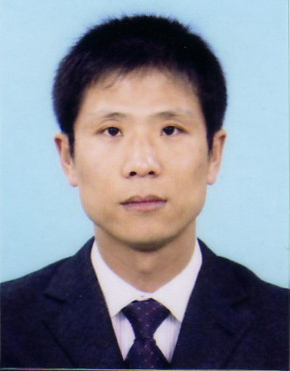
Bin Liu serves as an associate professor
at college of Information Engineering of
Northwest A&F University in China. He
received a Ph.D. degree in computer
science and technology at Xi’an Jiaotong
University in China, in 2014. He worked as
a member at Key Laboratory of Agricultural
Internet of Things of Ministry of
Agriculture and Rural Affairs and Shaanxi
Key Laboratory of Agricultural Information
Perception and Intelligent Service. His
research interests include computer
Vision, intelligent agriculture, deep
learning and agricultural pest monitoring
and early warning. He participated in
projects supported by National Natural
Science Foundation, National Key Projects,
National Key Research and Development
Project, Natural Science Foundation of
Shaanxi Province. Based on these projects,
he published many academic papers.
Moreover, he serves as a reviewer for
Computers and Electronics in Agriculture,
Frontiers in Plant Science, IEEE Trans. on
Computers, the Journal of Supercomputing,
etc.
Workshop 20
Title 1:
Intelligent Computing in Cyberspace
Security
Summary:
With the development of machine
learning, In particular, the widely
successful application of deep learning,
cyberspace security t can be solved by
machine learning.For example, the
detection of inferior chip or hardware
Trojan horse, pseudo-base station
detection, virtualization security,
credit card fraud and so on can be
abstracted as classification problems;
Device identity authentication, abnormal
social network account detection,
network intrusion detection and so on
can be abstracted as clustering
problems; User identity authentication,
malicious/abnormal/intrusion detection,
forensics analysis, network public
opinion and other issues can be
abstracted as both classification
problems and clustering problems.
Keywords:
Machine Learning, Deep learning, Pattern
recognition, Intrusion Detection,
Malicious code classification
Chair
:
Prof.
Haixia Long,
School of Information Science and
Technology Hainan Normal University,
China

Haixia Long, Professor, Master's Tutor,
Doctor of Engineering, Major in Computer
Application. Hainan Nanhai Famous
Masters, Hainan Province High-level
Top-notch Talents. Three textbooks and
two monographs have been published;
Presided over 1 National Natural Science
Foundation under research, 3 Hainan
Natural Science Foundation projects and
1 Hainan Education Department project;
As the first finisher, he won one third
prize of Hainan Provincial Science and
Technology Progress Award, and as the
first finisher, he won one third prize
of Hainan Provincial University
Outstanding Scientific Research
Achievement Award; He has published more
than 30 research papers.
SCI Indexed Journals
Journal of Healthcare Engineering
Wireless Communications and Mobile Computing
Security and Communication Networks
Tropical Conservation Science
Mobile Information Systems
Journal of Advanced Transportation
